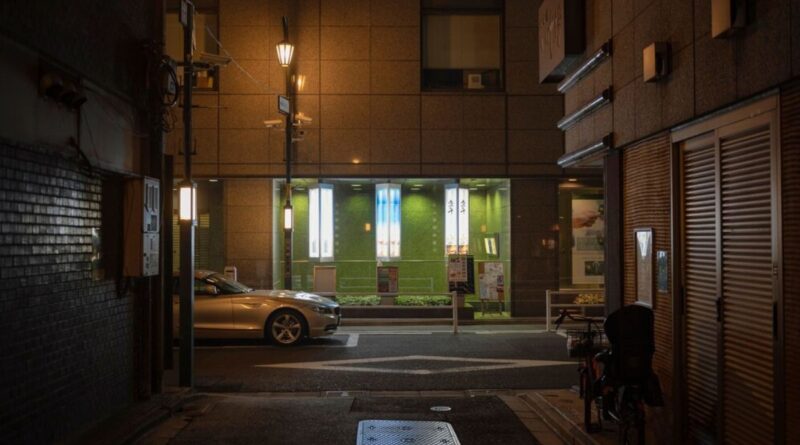Omae Wa Mou Shindeiru: The Iconic Phrase That Transcended Anime Culture
Introduction to Omae Wa Mou Shindeiru
If you’re an anime fan, chances are you’ve encountered the phrase “Omae Wa Mou Shindeiru.” This iconic line has become synonymous with dramatic moments in anime, often uttered just before a character meets their fate. Its direct translation—”You are already dead”—might seem straightforward, but its impact runs far deeper than that. From gripping battle scenes to meme culture, this phrase transcends mere dialogue; it’s a cultural phenomenon that resonates across generations of anime enthusiasts. Let’s dive into the origins and significance of this unforgettable expression firmly cemented in both Japanese and Western pop culture.
Origin and Meaning of the Phrase
“Omae Wa Mou Shindeiru” translates to “You are already dead.” It originates from the iconic anime series *Fist of the North Star*, which aired in 1984. Spoken by protagonist Kenshiro, it epitomizes a moment of impending doom.
Kenshiro often delivers this line before unleashing his devastating martial arts technique on an enemy. The chilling nature of the words, combined with their dramatic timing, has captured audiences for decades.
In Japanese culture, the phrase conveys not only physical death but also a sense of fate sealed. It suggests that one’s destiny is predetermined and unavoidable—a powerful theme prevalent in many narratives. This depth contributes to its lasting impact within anime communities and beyond.
Popularity and Spread in Anime Culture
Omae Wa Mou Shindeiru gained immense popularity through its iconic delivery in the classic anime series, “Fist of the North Star.” Kenshiro’s chilling line became synonymous with his formidable power and unwavering resolve.
From there, it spread like wildfire across various anime communities. Fans began sharing clips and references on social media platforms, becoming a cultural phenomenon.
Anime conventions buzzed with excitement as cosplayers embraced this phrase. It became a staple among enthusiasts who wanted to showcase their love for classic titles.
The expression resonated deeply due to its dramatic flair and memorable context. Several other series incorporated similar themes of unexpected fate or sudden demise, further embedding the phrase into the fabric of anime culture.
In forums and discussion threads, “Omae Wa Mou Shindeiru” sparked countless conversations about character development and storytelling techniques within different shows. Its relevance continues to thrive as new generations discover its origins.
Impact on Western Pop Culture
Omae wa mou shindeiru has woven itself into the fabric of Western pop culture in unexpected ways. The phrase, often associated with epic confrontations in anime, resonates with audiences beyond Japan.
It’s become a go-to line for dramatic video games and meme moments. Gamers frequently quote this phrase when delivering a final blow to opponents or showcasing a signature move.
Social media platforms have exploded with users creating content around this iconic expression. TikTok videos feature creators reenacting scenes, often adding their twist to the classic catchphrase.
Television shows and movies are not exempt either; references to omae wa mou shindeiru appear as nods to anime culture within mainstream narratives. This crossover reflects the growing acceptance of anime among Western audiences and its influence on popular storytelling.
As more people discover its origins, the reverberations of this powerful phrase continue to shape cultural conversations everywhere.
Memes, Merchandise, and Parodies
The phrase “omae wa mou shindeiru” has become a goldmine for memes across social media platforms. Fans remix the iconic line into countless scenarios, often pairing it with dramatic visuals from popular anime scenes. These creations entertain and foster a sense of community among fans.
Merchandise featuring this phrase is everywhere. T-shirts, mugs, and even wall art showcase its coolness factor. For many collectors, owning these items is a badge of honor within the anime community.
Parodies have taken it to another level. YouTube creators twist the phrase into humorous sketches or animations highlighting its absurdity in everyday situations. This playful approach keeps the spirit alive while attracting new fans who might not be familiar with its origins.
Through memes and merchandise, “omae wa mou shindeiru” resonates deeply within Japanese and international subcultures.
Controversy Surrounding the Phrase
The phrase “Omae Wa Mou Shindeiru” has sparked its fair share of debate among fans and critics alike. Some argue that it glorifies violence, as it often appears in intense battle scenes. This perception can lead to misunderstandings about the nature of anime itself.
Conversely, many see it as a humorous catchphrase used in exaggerated contexts. It’s not meant to be taken seriously, but it expresses dramatic flair typical of anime storytelling.
Another layer to the controversy is cultural appropriation. As this phrase transitions into Western pop culture, some question whether its usage respects or distorts its original intent and context within Japanese media.
These discussions highlight how seemingly simple things evoke strong opinions across different audiences. The ongoing dialogue keeps the phrase relevant while prompting deeper engagement with anime culture.
Conclusion: Why Omae Wa Mou Shindeiru will always be a beloved part of anime culture
Omae wa mou shindeiru has firmly established itself as a cultural touchstone within the anime community. The phrase, which translates to “You are already dead,” embodies the essence of dramatic storytelling found in numerous anime series. Its impactful delivery and memorable context make it unforgettable.
This iconic line resonates with fans and serves as a gateway for newcomers to explore deeper themes in their favorite shows. Through countless memes, merchandise, and parodies, it continues to thrive across various platforms.
The controversy surrounding its use adds layers to its significance—debates about translation accuracy or whether it’s overused can spark lively discussions among fans. Yet these conversations only enhance its status within pop culture.
As we look at how far this simple phrase has traveled from Japan’s animation studios into mainstream consciousness, one thing is clear: Omae wa mou shindeiru will always hold a special place in the hearts of anime enthusiasts and casual viewers alike. It symbolizes the power of words that transcend language barriers while connecting generations through shared fandom experiences.
